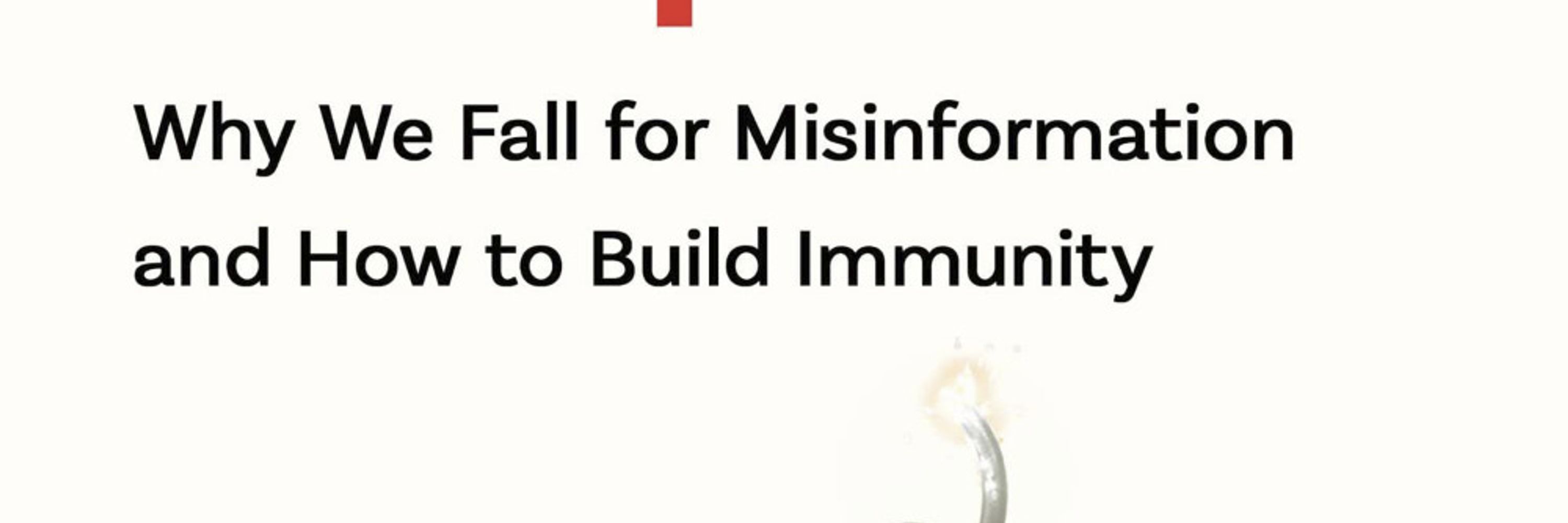
Professor of Social Psychology in Society at the University of Cambridge and Author of FOOLPROOF: Why We Fall for Misinformation and How to Build Immunity (2023) + The Psychology of Misinformation (2024). Bad News Game.
www.sandervanderlinden.com ..
more
Professor of Social Psychology in Society at the University of Cambridge and Author of FOOLPROOF: Why We Fall for Misinformation and How to Build Immunity (2023) + The Psychology of Misinformation (2024). Bad News Game.
www.sandervanderlinden.com
Sander L. van der Linden is a Dutch social psychologist and author who is Professor of Social Psychology at the University of Cambridge. He studies the psychology of social influence, risk, human judgment, and decision-making. He is known for his research on the psychology of social issues, such as fake news, COVID-19 conspiracy theories, and climate change denial. .. more
Reposted by Sander van der Linden, Jeroen Van Bouwel
1/9
He was friendly with a huge number of the leading figures in the field, including giving millions to their labs, long after he pled guilty to sexually abusing young girls
www.justice.gov/epstein

www.cam.ac.uk/jobs/term/De...
Reposted by Sander van der Linden

Released on Feb 3rd.
Pre-order a paperback or e-book in Europe >
amzn.eu/d/3UKW65E
Everywhere else >
www.amazon.com/Energy-Life-...
Reposted by Stephan Lewandowsky, Sander van der Linden

Professor Stiglitz will discuss systemic economic risks from disinformation and from platforms that amplify or monetize disinformation.
Reposted by Sander van der Linden

I have trained and evaluated jet pilots and there is no evidence to support this rage bait.
Our article is linked here:
www.promarket.org/2024/02/06/h...
Reposted by Sander van der Linden, Joseph Schafer


Reposted by Sander van der Linden, Greg Linden

#SciencePolicyForum #ScienceResearch 🧪
Paper: doi.org/10.1126/scie...

Reposted by Sander van der Linden

"Instagram users in treatment group were significantly & substantially better than the control group in correctly identifying emotional manipulation in a news headline."


✅ Inoculated users showed a 21 ppt increase in their ability to spot emotional manipulation (baseline ability was low)
✅ These effects remained detectable 5 months.
✅ We also increased information-seeking behavior, treatment users were 3x more likely to click on the ad.
3/3

Reposted by Stephan Lewandowsky, Jessica Taylor Piotrowski

We targeted +375k users with a short ad on Insta using a novel quasi-experimental method (1/3)
misinforeview.hks.harvard.edu/article/preb...
Reposted by Sander van der Linden, Jane Suiter

How malicious AI swarms can threaten democracy www.science.org/doi/10.1126/... @daniel-thilo.bsky.social @kunstjonas.bsky.social et al.
AI swarms are can be used to engineering a "synthetic
consensus" that can manipulate public opinion and perceptions.
Reposted by Sander van der Linden

You think disinformation is bad now?
Wait until you hear about "AI swarms" and how they have the potential to upend democracy across the globe
www.wired.com/story/ai-pow...
Reposted by Sander van der Linden


AI systems can already coordinate autonomously, infiltrate communities, and fabricate social consensus.
www.science.org/doi/10.1126/...
Led by @kunstjonas.bsky.social & @daniel-thilo.bsky.social!


